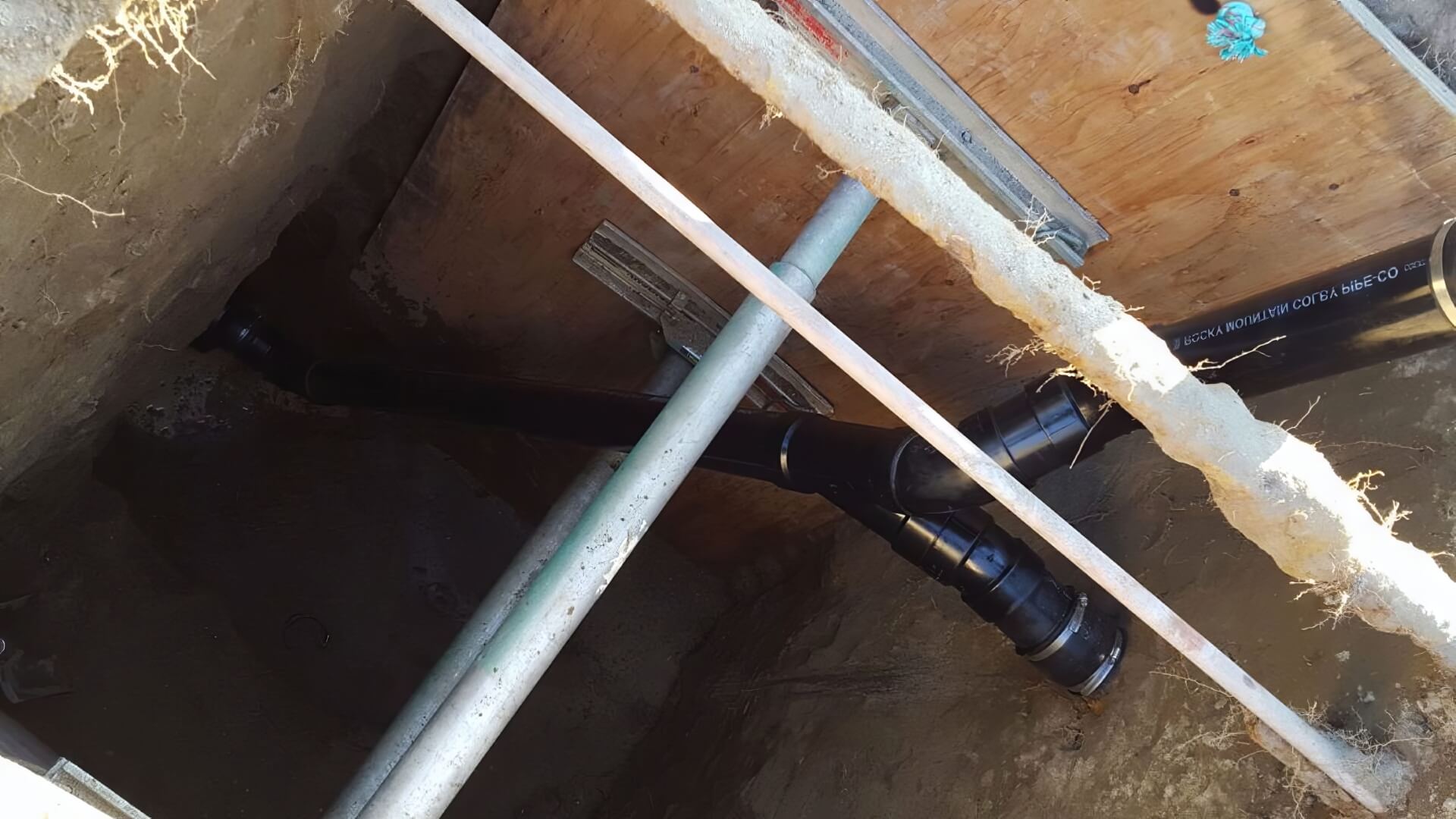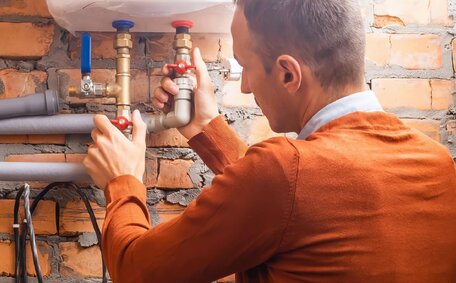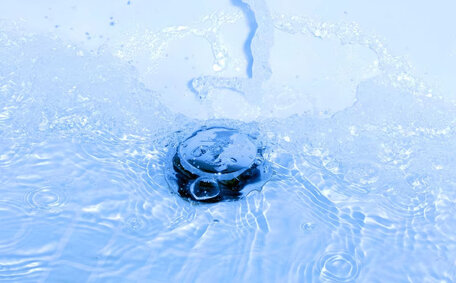Introduction to Drainage System Maintenance
Having a properly functioning drainage system is crucial for any home or business. Clogged drains and sewer lines can cause messy backups and lead to costly repairs if left unchecked. By being proactive and doing regular maintenance, you can avoid these headaches and keep your plumbing running smoothly for years to come.
As experienced plumbers serving customers throughout Ryde, Sydney, the team at Ryde Plumbing understands the importance of drainage system maintenance. We want to help our neighbours prevent plumbing emergencies and maintain healthy pipes. This guide will cover the basics of what you need to know.
First, it’s helpful to understand what makes up your drainage system. These pipes connect to the main sewer lines running underground throughout your neighbourhood. Your drainage system includes components like P-traps, drain vents, and sewer cleanouts. Keeping each of these parts clear is key.
The drainage pipes installed under and around your property carry wastewater and sewage away from your home.
Simple habits like avoiding pouring fats or harsh chemicals down drains can go a long way toward maintenance. It’s also smart to run water through sinks and tubs regularly, even when not in use. Installing hair catchers and strainers prevents clogs from hair, food scraps, and other debris.
This keeps water flowing steadily through your pipes.
Beyond everyday prevention, it’s wise to schedule professional drain inspections and cleanings periodically. Companies like ours use high-pressure water jets and industrial strength augers to clear even the toughest clogs from main sewer lines. For ongoing maintenance, we also provide options like pipe relining to repair damage and prevent future problems.
Don’t wait until you have a plumbing emergency on your hands. By making drainage system maintenance a priority, you can avoid headaches from clogged drains, back-ups, and overflows. The team at Ryde Plumbing is here to help keep your pipes clear and your home or business operating smoothly.
Preventative Maintenance Tips
Maintaining a healthy drainage system starts with daily habits to avoid clogs and keep things flowing smoothly:
- Use drain guards or screens over all drains to catch hair and debris before it goes down the drain.
- Pour 1⁄2 cup baking soda followed by 1 cup vinegar down drains monthly to break up grease and keep pipes clear.
- Pour boiling water down bathroom sink drains weekly to melt away built up gunk and soap scum.
- Limit use of garbage disposals to avoid overloading your plumbing with food scraps.
- Don’t pour fats, oils or harsh chemicals down any drain to avoid damage.
Also schedule professional maintenance annually:
- A drain inspection and cleaning can clear tough clogs from main sewer lines using high-powered equipment.
- Consider pipe relining to repair damage inside pipes and improve water flow.
Being proactive about habits like these will go a long way toward maintaining a healthy drainage system and avoiding costly plumbing emergencies.
Using the Right Cleaning Products
When it comes to keeping your drains clear, using the right cleaning products is key. Many commercial drain cleaners contain harsh chemicals like lye or sulfuric acid that can damage pipes. For a gentler approach, try homemade drain cleaner recipes using ingredients like baking soda and vinegar.
Baking soda is a mild base that helps break down gunk and grease clogging drains. Baking soda is a mild base that helps break down gunk and grease clogging drains. For preventive maintenance, pour 1/4 cup baking soda down drains weekly.
The chemical reaction bubbles away buildup.
Boiling water can also help melt away accumulations of fats and soaps. Carefully pour a kettle-full down the drain once a week. Just avoid pouring fats directly down drains, and use drain catches to trap food particles and hair.
While commercial drain cleaners may seem like a strong solution, their corrosive ingredients can damage your pipes and septic system over time. The small amounts of baking soda and vinegar needed for homemade cleaners break up clogs safely. Using more natural products regularly helps maintain healthy drainage and avoid future problems.
When to Call a Professional Plumber
While regular maintenance goes a long way, there are times when a professional plumber is needed to get your drainage back on track and prevent lasting damage.
Call for emergency plumbing services if you experience:
- A clogged main sewer line that DIY methods cannot clear. This requires high-powered hydro jetting equipment.
- Extensive drain backups that cause flooding in your home or business.
- Slow draining that continues after trying homemade remedies.
- Lingering sewer odours, which could signal cracked pipes or pipe damage.
- Leaking or burst pipes, especially in hard to access areas.
Even if you stay on top of maintenance, drainage systems inevitably suffer wear and tear over time. By having your pipes professionally inspected, plumbers can check for:
- Root intrusion or pipe corrosion
- Collapsed drains or misaligned joints
- Cracks or holes allowing groundwater seepage
Based on the inspection, they may recommend trenchless sewer line repairs using pipe relining. This coats damaged pipes to seal leaks and restore proper water flow.
For any plumbing emergency, the licenced professionals at Ryde Plumbing are ready 24/7 to restore your healthy drainage. Do not hesitate to if you notice persistent issues.
Signs of Drainage Problems
A number of issues can indicate your drainage system needs attention:
- Slow-draining sinks, tubs, or toilets that take longer than usual to empty
- Gurgling sounds from drains
- Pools of standing water around your home after rain
- Foul sewage odours coming from drains or vents
- Low water pressure throughout your plumbing system
- Backed up drains or overflowing toilets
- Large puddles forming around your septic tank or leach field
- Cracked pipes, misaligned joints, or visible corrosion
You may also notice reduced water flow from fixtures, bubbly discharge from drains, leaking pipes, and water backups. Persistent drainage problems like these signify damage and clogs. The sooner a professional inspects your pipes, the less likely you’ll sustain flooding or sewage overflows.
Maintaining Different Types of Drains
p>p>p>p>p>p>p>p>p>p>p>
Proper Disposal of Drain-Clogging Items
p>p>p>p>p>p>p>p>p>p>p>p>p>p>p>p>p>
Conducting Regular Inspections
p>p>p>p>p>p>p>p>p>p>p>p>p>p>p>p>p>p>
Conclusion
Maintaining a properly functioning drainage system is one of the most important aspects of plumbing maintenance. Failing to keep drains and sewer lines clear can lead to messy backups, costly repairs, foul odours, and major headaches.
By following the preventative tips outlined here and partnering with professional plumbers for regular maintenance, homeowners and businesses can keep their plumbing in prime shape for years to come.
To recap, habits like using drain strainers, avoiding pouring harsh chemicals down drains, and cleaning with baking soda and vinegar instead of toxic cleaners will go a long way toward supporting drainage health.
Annual professional drain cleanings clear out the toughest clogs, and inspections identify issues before they worsen. If persistent problems arise, never hesitate to call 24/7 for emergency plumbing services.
Here at Ryde Plumbing, we want to be your trusted partner for all your plumbing needs.
Our team of experienced, licenced professionals has in-depth knowledge of drainage systems and advanced tools like pipe cameras to diagnose issues. Our team of experienced, licenced professionals has in-depth knowledge of drainage systems and advanced tools like pipe cameras to diagnose issues.
By making drainage maintenance a priority for your Sydney area home or business, you can prevent headaches down the road. Please don’t hesitate to [insert desired CTA] at any time to schedule professional drain services or ask us questions. Investing in your plumbing system now saves you money, stress, and trouble in the long run.
We’re here to help keep your plumbing running smoothly. Don’t wait until you’re dealing with flooded basements or sewage backups.






